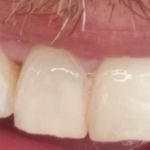Can Dental Trauma Lead to Permanent Tooth Loss?
- Understanding Dental Trauma
- Causes of Dental Trauma
- Steps to Prevent Tooth Loss
- Tooth Restoration Options
- Emergency Dental Care
Understanding Dental Trauma
Dental trauma refers to any injury that affects the teeth and surrounding structures, leading to discomfort or damage. While most dental injuries can be managed with prompt care, some may result in permanent tooth loss. In this article, we will explore how dental trauma can cause permanent tooth loss and what steps you can take to protect your smile. We will also discuss various tooth restoration options and the importance of timely dental care.
Causes of Dental Trauma
Dental trauma can occur for several reasons, ranging from accidental falls to sports injuries. The following are some of the most common causes of dental injuries:
- Sports Injuries: Participating in high-contact sports like football or basketball can increase the risk of dental trauma. A hard impact or collision can cause teeth to break, crack, or even be knocked out entirely.
- Accidental Falls: Slips, trips, or falls are a common cause of dental trauma, especially among young children or older adults who may have trouble with balance.
- Car Accidents: Car crashes or any accidents involving blunt force can result in serious dental injuries, often requiring urgent care to save the teeth.
- Physical Altercations: Fights or other physical altercations can lead to direct blows to the mouth, causing fractures or dislodged teeth.
While some dental injuries may only result in minor pain or chips, others can lead to significant damage, requiring professional dental intervention to avoid permanent tooth loss.
Steps to Prevent Tooth Loss
While dental trauma cannot always be avoided, there are several steps you can take to minimize the risk of tooth loss:
- Wear Protective Gear: For athletes, wearing a mouthguard is one of the most effective ways to protect teeth during contact sports. Custom-fit mouthguards offer the best protection by cushioning the impact.
- Practice Good Oral Hygiene: Maintaining strong teeth and gums through regular brushing, flossing, and professional cleanings can help your teeth withstand minor impacts.
- Avoid Risky Behaviors: Avoid activities that can increase the risk of accidents, such as chewing on hard objects or engaging in physical altercations without proper protection.
- Maintain Strong Teeth: Eating a balanced diet with adequate calcium and vitamin D helps keep teeth strong and resilient. Regular dental checkups also ensure early detection of any potential issues.
By taking these precautions, you can significantly reduce the likelihood of experiencing serious dental trauma and its potential consequences.
Tooth Restoration Options
If dental trauma leads to permanent tooth loss, there are several tooth restoration options available:
- Dental Implants: Dental implants are the most durable and long-lasting solution for replacing a lost tooth. A titanium post is surgically placed into the jawbone, followed by the attachment of a crown to restore the appearance and function of the missing tooth.
- Dental Bridges: If a tooth is missing but adjacent teeth are healthy, a dental bridge can be used to fill the gap. A bridge is a prosthetic that is anchored to the surrounding teeth for support.
- Partial Dentures: These removable appliances are used to replace missing teeth when dental implants or bridges are not an option. They are designed to fit comfortably in the mouth and restore both function and appearance.
Each restoration option comes with its own benefits and considerations. Your dentist can help you choose the best solution based on your specific needs and preferences.
Emergency Dental Care
In the event of a dental trauma, acting quickly is essential to prevent permanent tooth loss. Here are some important steps to take:
- Contact Your Dentist Immediately: If you experience a dental injury, reach out to your dentist as soon as possible. Many dental offices offer emergency services to address urgent cases.
- Preserve the Tooth: If a tooth is knocked out, handle it carefully by the crown, not the root, and rinse it with water. If possible, place it back into the socket or store it in a container with milk to keep it moist.
- Apply Cold Compress: To reduce swelling and manage pain, apply a cold compress to the affected area. Avoid applying ice directly to the tooth or gums.
Timely dental care can save a tooth and minimize long-term damage, so it’s crucial to act quickly and seek professional treatment right away.







 Maui Whitening Orlando4.0 (32 review)
Maui Whitening Orlando4.0 (32 review) Bloomington Southside Dental Care3.0 (26 review)
Bloomington Southside Dental Care3.0 (26 review) Christiana Dental Center4.0 (650 review)
Christiana Dental Center4.0 (650 review) Carolina Dental Arts - New Bern Ave4.0 (152 review)
Carolina Dental Arts - New Bern Ave4.0 (152 review) Equitas Health Short North Medical Center3.0 (96 review)
Equitas Health Short North Medical Center3.0 (96 review) Prosthodontics of Madison - Kendra Schaefer, DMD & Christine Roenitz, DMD4.0 (25 review)
Prosthodontics of Madison - Kendra Schaefer, DMD & Christine Roenitz, DMD4.0 (25 review) The Importance of Oral Health Education During Pregnancy for a Healthy Pregnancy
The Importance of Oral Health Education During Pregnancy for a Healthy Pregnancy Best Tips for Brushing Your Teeth Properly for Healthy Gums: Essential Techniques for Oral Health
Best Tips for Brushing Your Teeth Properly for Healthy Gums: Essential Techniques for Oral Health Why Skipping Dental Checkups Can Lead to Bigger Oral Health Problems
Why Skipping Dental Checkups Can Lead to Bigger Oral Health Problems Advantages of Porcelain Dental Restorations
Advantages of Porcelain Dental Restorations How Can Diabetes Cause Tooth and Gum Problems? Preventing and Managing Oral Health Issues
How Can Diabetes Cause Tooth and Gum Problems? Preventing and Managing Oral Health Issues Healthy Habits for Promoting Good Oral Health and Hygiene: Tips for a Healthy Smile
Healthy Habits for Promoting Good Oral Health and Hygiene: Tips for a Healthy Smile